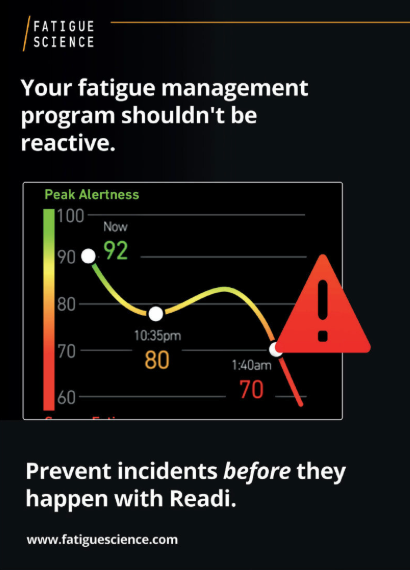This edition of Sleep school is all about hitting the hay while you’re hitting the road. As we previously introduced, our new friends at Traction on Demand are going to be driving their Smokey and the Bandit themed convoy from Vancouver, BC to San Francisco, CA to attend Dreamforce this month. We know that sleeping can be a challenge while on the road – you’re away from the comforts of home, spending long days sitting in a car, and out of your routine. Since we want to make sure the Readibandits are getting most out of their sleep opportunities we thought we would share some tips on how to get the best sleep while traveling on the road.
Take driving breaks
Long drives are tiring – plan to take breaks every couple of hours and switch off with your travel companions. Get out of the car and walk around to stretch the legs and breathe in some fresh air. We know the Traction Bandits aren’t doing any overnight driving, which is great planning on their part as it is not a good idea to be driving when your body would normally be sleeping.
Considering a nap
If your driving shift is in the evening, consider a nap.
10-20 minutes should be enough to see increased alertness 30-90 minutes later and don’t take over the wheel until you have had some time to wake up. For the best results, take the short nap between 3-5PM when your body is at a ‘circadian low’.
Checking in
When you are checking into your roadside motel for the night, request a room away from potential noise – conference rooms, ice rooms and elevators within close proximity provide opportunity for extra noise that might interrupt your sleep. The quietest rooms are usually on the top floor and at the end of the hall.
Wind down
After your long day on the road, take time to lay out some plans for the next day’s trip, shower or bathe to relax and help reset your body temperature for sleep and instead of turning on the TV, opt for a book or do some stretches.
Most hotels and motels have black out curtains on the windows – use them! Even if it’s dark when you go to bed, the sun may be up earlier than you would like to be. The heavy drapery will also help block out extra outside noise. If there’s a fan in the room, it’s also a good idea to turn it on low – it will keep the room cool for sleeping and also help filter out extra outside and hallway noises. If there is a glowing digital alarm clock near the bed, turn it to face the wall or cover it up, the light from the clock can actually disturb sleep.
Unpack your personal sleep kit
Personal sleep kit? We recommend an eye mask, earplugs and a night light – especially if you are sharing hotel rooms with your travel mates. You may be a great sleeper and have the room set up to maximize silence from the outside, but what if your travel buddy snores and is prone to getting up in the night to go to the bathroom? An eye mask and ear plugs will help limit the potential disturbances of your restless roomie. A night light in the bathroom can provide enough light to navigate during late night bathroom visits without turning on the bright hotel room lights and tricking your brain into thinking it’s morning time.
Wake up time!
Arrange for a wake up call with plenty of time to get ready for the days driving. Morning grogginess (or sleep inertia) can be just as dangerous as fatigue at the end of a long day – give yourself time to wake up and enjoy your breakfast and coffee before hitting the road.
These tips will help you make the most out of your less-than-ideal sleeping conditions while on the road. Always aim for your 7-9 hours of sleep and if you’re feeling fatigued while driving, take a break, switch off at the wheel or plan to pack it in and end the driving day early.
Happy travels, Bandits!




